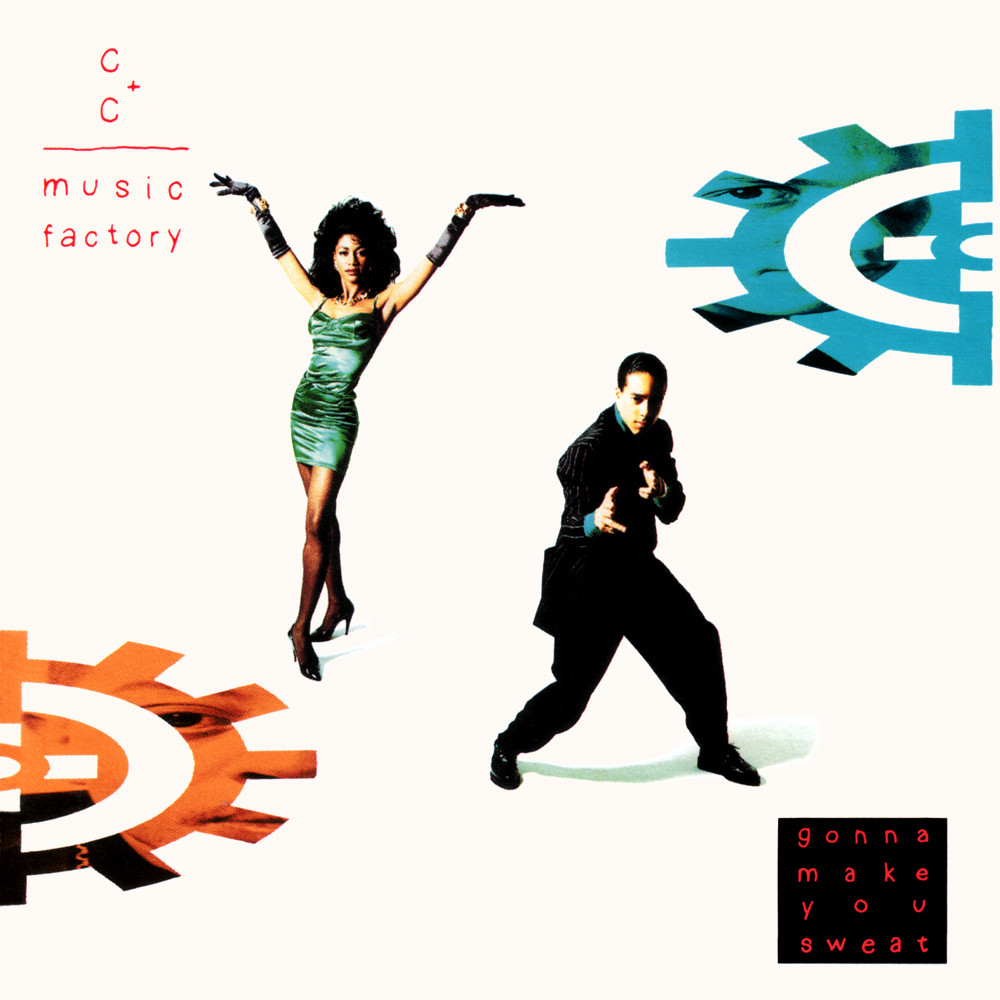Today, we’re diving deep into the 1990s with a revisit of Gonna Make You Sweat, the debut album from C+C Music Factory, the brainchild of David Cole and Robert Clivillés. The question is, does this album, and particularly the iconic track “Everybody Dance Now”, still hold up today, or is it a relic of a bygone era? Let’s find out if this record still has the power to make you sweat.
 C+C Music Factory Gonna Make You Sweat Album Cover
C+C Music Factory Gonna Make You Sweat Album Cover
The allure of nostalgia is strong, and for many, the mere mention of C+C Music Factory instantly conjures up images of packed dance floors and the unmistakable opening synth riff of “Gonna Make You Sweat (Everybody Dance Now)”. This track was undeniably the hook that drew listeners into the album, promising the same high-energy, dance-inducing experience throughout. It’s easy to see why the reviewer was initially drawn in, remembering the track’s power and comparing it to Black Box‘s “Ride On Time”, another anthem of the era. “Gonna Make You Sweat (Everybody Dance Now)” indeed became a massive hit, reaching #3 in the UK charts and cementing C+C Music Factory‘s place in pop culture.
However, after the initial excitement of the title track and moving into “Here We Go, Let’s Rock & Roll”, a sense of repetition begins to creep in. The reviewer astutely points out the feeling of a “10-track remix” of their hit songs. “Here We Go, Let’s Rock & Roll”, while energetic, does musically echo “Gonna Make You Sweat (Everybody Dance Now)”. The track even incorporates elements reminiscent of Chic‘s “Le Freak”, although uncredited, and foreshadows the later hit “Jump” by Kriss Kross. Despite being released as their second UK single, it only reached #20, suggesting that perhaps the formula was already wearing thin for some listeners.
Fortunately, “Things That Make You Go Hmmmm….” arrived as the third track, providing a much-needed change of pace. This single proved to be another success, reaching #4 in the UK and reaffirming their hit-making ability. Like their previous hits, Freedom Williams contributed with his rap vocals.
Yet, the album’s pacing and structure present a significant issue. The reviewer highlights the excessive length of the tracks. With only the title track clocking in under 4.5 minutes and several tracks exceeding 7 minutes, including the epic “A Groove Of Love (What’s This Word Called Love?)” at a staggering 10 minutes, the album risks losing listener engagement. Tracks like “Live Happy” and “Bang That Beat”, despite possessing positive qualities, suffer from being drawn out. In a genre where brevity can be a virtue, these extended runtimes feel indulgent, particularly given the repetitive lyrical content.
Adding to this, the reviewer critiques Freedom Williams‘ rap contributions as monotonous and lacking variation across tracks. While rap was integral to the sound of early 90s dance music, the lack of lyrical depth and diversity becomes noticeable over the album’s duration.
The Legacy of C+C Music Factory and Martha Wash’s Vocals
The question of “Where are C+C Music Factory now?” takes a somber turn with the mention of David Cole’s untimely passing in 1995. Robert Clivillés has continued his career in music production, working with other artists.
The review’s concluding verdict is quite harsh, stating a lack of enjoyment for the album. A core issue identified is the sonic similarity across the songs. The reviewer rightly praises Martha Wash, the powerhouse vocalist behind the album’s iconic vocals (and also uncredited vocals for Black Box). Wash’s vocal performance is recognized as exceptional, particularly considering the material she was given. However, the controversy surrounding Wash’s uncredited vocals and the use of Zelma Davis for lip-syncing and album art is highlighted. This led to Wash suing both C&C Music Factory and Black Box, bringing to light the often-overlooked contributions of session vocalists in the music industry.
Further criticism is directed at the lengthy and forgettable song titles, which even became tedious for the reviewer to type. The irony is noted that C&C Music Factory‘s production work for other artists was considered brilliant, contrasting sharply with the perceived lack of inspiration on their own album.
Ultimately, the review delivers a scathing 1/5 rating. Despite the album achieving #8 in the UK charts in 1990 and being certified Gold, this retrospective listen leaves much to be desired for this reviewer. The final takeaway is a sense of disappointment, especially considering the album was purchased for £1, deemed even that a waste.
In conclusion, while “Gonna Make You Sweat” undoubtedly delivered the iconic anthem “Everybody Dance Now,” the album as a whole struggles to maintain that initial spark. Repetitive musical structures, overly long tracks, and lyrical shortcomings overshadow the undeniable vocal talent of Martha Wash. For those seeking a nostalgic trip back to the early 90s dance scene, “Everybody Dance Now” remains a must-listen, but venturing deeper into the “Gonna Make You Sweat” album might be a mixed experience.


